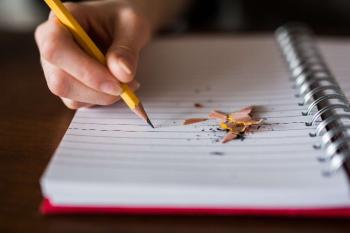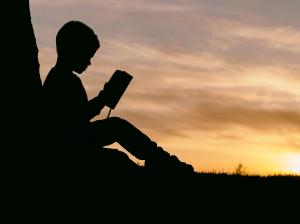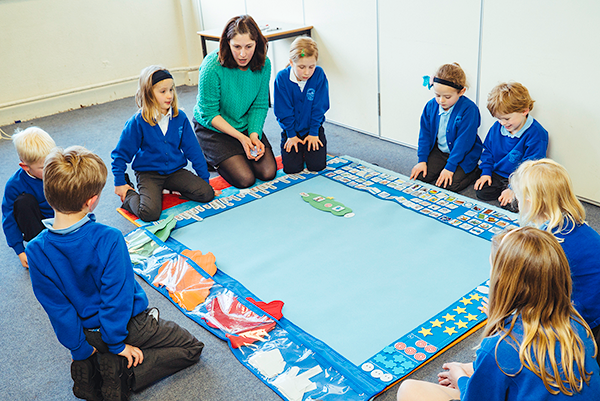Why Is Early Literacy In Childhood So Important?
No matter what the academic subject, strong foundations in literacy are the building blocks. An early grasp of reading and writing in childhood can often make the difference between success and struggle, throughout primary education and beyond.
Identifying those who struggle with literacy, and thus being able to intervene, is essential in every classroom – and rarely more critical than in KS1, where children are first getting to grips with print and pencils.
From sounding out words, to knowing the difference between a ‘curly c’ and a ‘kicking k’, the pace of learning for young children is rapid. However, it’s possible for some children to fall short of their peers; and, unfortunately for the child, this is often due to external forces.
Children who spend an average of 25 minutes a day reading are exposed to around 20,000 unfamiliar words a year; and for children whose literacy skills are emerging, this is mostly reliant on parental contact, such as providing an adequate stock of books, and also having the time to regularly read aloud.
Teachers often need to provide the stopgap where early literacy skills haven’t been emphasised at home.
Children’s exposure to early literacy is changing.
While 69% of preschool children were read to daily in 2013, that figure had dropped to just 51% in the Autumn of 2017.
The world children live in is swiftly evolving and, for better or worse, this can lead to a sacrifice. Parents who are busy working may simply lack the time or energy to fit literacy activities into the day; similarly, children are (as you no doubt realise from your own class) becoming increasingly distracted by technology, and the multiple screens available to them.
With a quarter of children under the age of six now owning a smartphone, resulting in half of those spending up to 21 hours per week on the device, it’s easy to spot who’s been reading and who’s been watching YouTube.
The early literacy practices in your classroom can make all the difference.
A child’s journey through literacy is continuous, and constantly developing.
Spanning across listening, speaking, reading and writing, putting these skills into real-life practice can make it easier for children to engage. Being mindful of literacy throughout the school day can certainly help to make the process feel more natural, for children and teachers alike.
Children can be exposed to good early literacy skills in simple ways, which are habitual, as opposed to planned lessons.
Children can pick up a wealth of literacy skills, purely through their classroom environment.
Access to plenty of casual reading and listening opportunities can broaden their vocabulary significantly, as well as helping them pick up words by sight.
A relaxed structure doesn’t equate to a lack of support – it’s quite the opposite, in fact. Children who don’t experience the benefit of regular literacy activities at home (a daily bedtime story, for example) are more likely to engage when the emphasis at school is initially subtle.
Reading opportunities are easily incorporated into the everyday.
 Classroom labelling can give the children the opportunity to recognise new words regularly; ‘bookshelf’, ‘reading chair’, ‘quiet corner’, etc.
Classroom labelling can give the children the opportunity to recognise new words regularly; ‘bookshelf’, ‘reading chair’, ‘quiet corner’, etc.
Dedicated areas for reading and writing can also be made available for children to visit of their own accord; in addition, regular literacy experiences can be scheduled in such a way that they don’t feel intimidating to the unfamiliar.
Small group reading activities, for example, can help children to have more focus than when they need to sit with the entire class.
Listening is essential to building early literacy skills; it’s not necessarily about practice, but absorption.
Listening provides an essential context to later recognising sentence structures.
Children learn by attaching new information to old information. When children regularly engage in conversation with adults, they develop their vocabulary with unfamiliar words; this can then be used as a knowledge foundation for reading and writing.
Ultimately, if we attach something new to something old, it’s easier to digest.
Picture books are the obvious tools to link objects with words when read aloud. However, the back-and-forth between teacher and child can be developed beyond this.
You will no doubt be familiar with running your finger under words to help orientate children and get them into the flow of reading from left to right. However, this is also an opportunity to help children recognise punctuation; not use it themselves, necessarily, but merely have it pointed out to them. The familiarity, in a setting they are now accustomed to, can work wonders.
Reading comprehension can also be checked in this scenario.
After the last page has been turned, can a child answer questions about the story? Do they remember key events? Can they point to the passage in the book where the event took place?
These simple dialogues can have a lasting effect on children getting to grips with early literacy, making a significant difference to how well they advance when new skills are formally introduced.
Mighty Writer is a comprehensive early literacy resource, which supports children from their first experience of storytime, to more complex grammar and punctuation skills.
 Presented on a large mat, which can either be spread on the floor or hung on the wall, Mighty Writer will bring true early literacy confidence into your classroom.
Presented on a large mat, which can either be spread on the floor or hung on the wall, Mighty Writer will bring true early literacy confidence into your classroom.
An array of colourful and engaging picture tiles can be used to tell a story, simplifying the usually complex process of learning to write.
The children can be creative with their own tales, as well as testing their comprehension by reciting a story that already exists; but there’s more.
With your help, children can also be introduced to tiles which represent punctuation, sentence openers and conjunctions, adding complexity as confidence grows. In addition, scaffolding around each sentence will emphasise good grammar, including symbols to represent adjectives, emotions, verbs and adverbs.
From understanding the flow of a sentence, to transcribing a complex passage with ease, Mighty Writer perfectly outlines the writing process, with a wealth of uses to suit different learners.
Ready to learn more?
Watch our FREE recorded webinar starring our co-founder, David Ralph, today!

